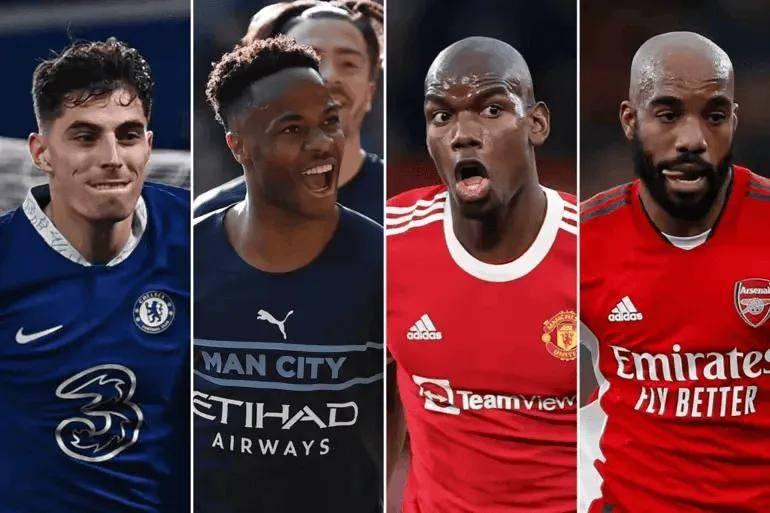How did Chelsea and Manchester City become the “sell kings” in the Premier League’s Big 6?
In a surprising turn of events, Chelsea and Manchester City have solidified their status as the “sell kings” of the Premier League’s Big 6. Chelsea, in particular, has recently completed multiple player sales, generating a whopping £193m ($245m) in revenue in just 10 days. This level of activity in player sales is unprecedented in the Premier League.
The player exodus began with Mason Mount’s announcement of his move to Manchester United last Wednesday. Following that, a flurry of deals saw players like Kalidou Koulibaly, Mateo Kovacic, Edouard Mendy, Kai Havertz, and Ruben Loftus-Cheek all leaving Stamford Bridge ahead of the first training session under new coach Mauricio Pochettino. Chelsea could have sold more players if Hakim Ziyech’s move to Saudi side Riyadh Victory had not collapsed.
These lucrative sales have allowed Chelsea to offset their significant net expenditure of £440 million from last season and the cost of recent signings. In fact, Chelsea’s ability to sell players has been a crucial aspect of their financial strategy. Since the 2013-14 season, Chelsea has received a staggering total of £1.16 billion in transfer proceeds, making them the biggest seller in English football.
Manchester City, on the other hand, has also made significant sales in recent years. Particularly in the last two summers, the club has offset their ambitious signing costs by selling players like Raheem Sterling, Gabriel Jesus, Oleksandr Zinchenko, and Ferran Torres, raising nearly £140 million in total.
In contrast, other members of the Big 6 have struggled to replicate Chelsea and Manchester City’s success in player sales. Manchester United, for instance, has only recouped £60 million from player sales in the past three years. Similarly, Arsenal and Tottenham have not been able to balance their books through player sales.
By contrast, Brighton has excelled in player sales, making three times as much money as Tottenham in the past two years. It seems that Chelsea and Manchester City’s ability to sell players lies in their knack for extracting value from players they no longer need but who still hold significant market value.
For Manchester United, the process of selling players has not always been smooth, with heavy signings like Paul Pogba leaving the team for free. This summer, Manchester United has accepted the limits of Financial Fair Play due to their significant net expenditure of £472 million in the past three years. This pales in comparison to Chelsea’s net spend of £411 million during the same period.
Crucially, Chelsea’s impressive youth system has played a significant role in their ability to generate significant revenue from player sales. Players like Mount, Havertz, Ruben Loftus-Cheek, and more have all been academy graduates who have been sold for substantial sums. In total, Chelsea has earned close to £150 million from the sales of their academy graduates since 2021.
Manchester City has also adopted a similar strategy, as seen in the sale of goalkeeper Angus Trafford, who had never played at the top level, to Burnley for £19 million. Selling players has become an integral part of their financial model.
Ultimately, Chelsea and Manchester City’s ability to sell players effectively has allowed them to continue spending heavily in the transfer market. In an era where financial sustainability is key, their creative approach to player sales has set them apart from their Big 6 rivals.
